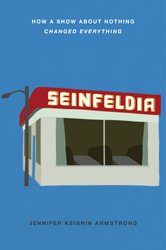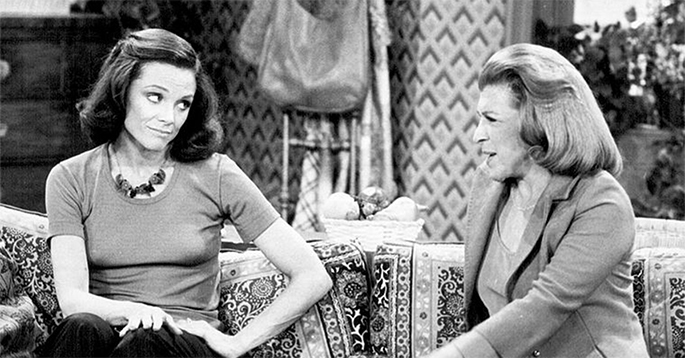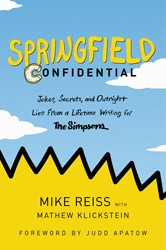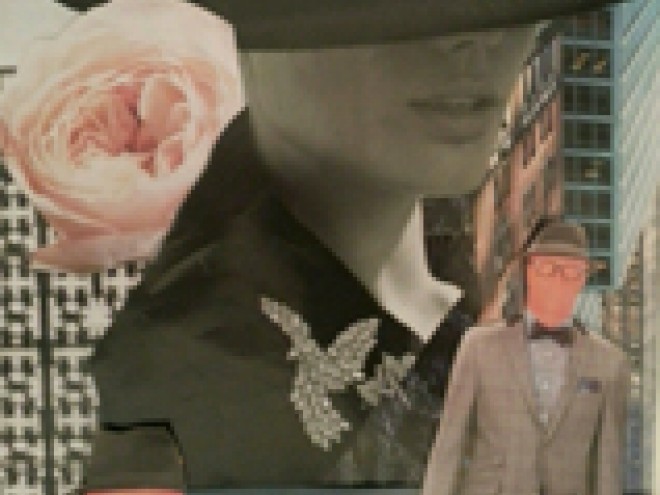Earlier this week, Jennifer Keishin Armstrong shared 6 things she learned about Jewish culture from watching Seinfeld. With the release of her book Seinfeldia: How a Show About Nothing Changed Everything earlier this week, Jennifer is guest blogging for Jewish Book Council as part of the Visiting Scribe series here on The ProsenPeople.
Jewish writers, producers, and actors have been among Hollywood’s most prominent since the television industry began in the 1940s. So it’s no surprise that they eventually began to tell their own stories: the struggle to bridge traditions in marriage to non-Jews, the feeling of being outsiders, the pride in their own unique culture — and, of course, the grand Jewish tradition of turning to witty humor in dealing with it all.
Here, some of the best shows in which Jewishness took center stage:
The Mary Tyler Moore Show (1970−77)
From 1949 to 1956, in the early days of television, The Goldbergs had been a hit — one of many that crossed over from radio. But since then, Jewish leading characters had virtually disappeared from TV as the medium grew more powerful. That changed in 1970 with The Mary Tyler Moore Show’s Rhoda — a sidekick to the main character, certainly, but a central and scene-stealing one. Played to perfection by (non-Jewish) Valerie Harper, Rhoda was a bold, funny New Yorker who’d moved to Minneapolis. She became so popular that she got her own spinoff in 1974. Only one episode during her time on Mary Tyler Moore blatantly dealt with antisemitism: In “Some of My Best Friends Are Rhoda,” Rhoda is excluded from a country club Mary’s new friend invites her to. Despite the excellent episode title, the effort comes across a little too preachy. Better are the subtle, everyday ways Rhoda’s differences come across, as when Rhoda’s parents renew their vows in front of a rabbi.
Rhoda (1974−78)
Harper’s Rhoda got her own sitcom in 1974 — a big deal for single, funny, Jewish girls who’d figured the best they could do is be a sidekick. The series focused on Rhoda’s move back to her hometown of New York City, where she soon met a tall, handsome, not-at-all-Jewish divorcée named Joe. They’re soon engaged, and eight weeks into the series, they get married in an hour-long special that broke ratings records. More than 52 million people tuned in, making it the most-watched TV episode of the 1970s at the time, and the second-most-watched of all time behind I Love Lucy’s birth episode in 1953. Monday Night Football announcer Howard Cosell acknowledged the nationwide interest, welcoming viewers to the in-progress game when the episode ended on a different channel. Rhoda’s Jewishness seemed to be fading from view with her mainstream stardom — a judge, not a rabbi, presided over the small ceremony in her parents’ apartment. On the other hand, she’d achieved the heights of mainstream stardom.
Seinfeld (1989−98)
Network executives at NBC famously expressed their doubts about Seinfeld before putting it on the air: “Too New York, too Jewish.” A few years later, when the show was dominating TV ratings and watercooler conversations, many Jewish leaders debated whether it was Jewish enough. It was, for sure, far more about being a comedian in New York than about being religiously Jewish; but Jewish culture crept in at times, via foods like babka and marble rye. And once in a while, even religion came into play. Jerry and Elaine serve as godparents at a bris. A kid kisses Elaine at his bar mitzvah to celebrate “becoming a man,” prompting George to explain that she has “shiksappeal.”
Curb Your Enthusiasm (2000- )
Seinfeld co-creator Larry David explored his Jewishness much more openly on his HBO show in which he plays a version of himself. In one episode, he acts Orthodox to kiss up to the head of the kidney consortium in hopes of getting his friend bumped up on the waiting list. The Israel-Palestine dispute plays out in a Palestinian restaurant where the chicken is so good it causes some serious soul-searching for Larry. (Fun fact: Alec Berg told me that this was a storyline he had left over from his days at Seinfeld.) Larry scalps tickets for High Holy Days, goes full goy when he (mistakenly) thinks he was adopted, and invites a sex offender to a Passover seder, testing the limits of “let all who are hungry come and eat.”
Sex and the City (1998−2004)
Charlotte York, the very definition of a WASP, falls in love with her Jewish divorce lawyer, Harry Goldenblatt. When he tells her he can’t marry a non-Jew, she is, at first, incensed. Never one to back down from a challenge — particularly a romantic one — she determines to convert. But she doesn’t take the decision lightly. Soon she’s much more serious about Judaism than her future husband. She works all day to prepare a Shabbat feast, only to catch him watching a game on a nearby TV on mute during the meal.
Transparent (2014- )
It’s easy to get distracted by the showy premise — a middle-aged father, Mort, comes out as a transgender woman renamed Maura to her adult children. It’s merely a sidenote that the family at the show’s center, the Pfeffermans, are undoubtedly Jewish. Perhaps that’s why they can show their Jewishness like no TV family before them: one of Maura’s children, Sarah, plans a Jewish wedding to her girlfriend, Tammy. Another of Maura’s children, Josh, dates a female rabbi. Key scenes take place in her synagogue, including an extraordinarily extensive depiction of tashlich. And throughout family flashbacks in the second season, a connection between transgenderism and Judaism emerges: A relative, a transgender woman, stayed behind during the Holocaust because she refused to travel under her given male name.
Orange Is the New Black (2013- )
Netflix’s hit about life in a women’s prison is at least as much comedy as drama, and that was apparent in the third season’s increasingly serious story arc about prisoners pretending to be Jewish to get the (slightly) better kosher meals. In the end, one dedicated prisoner, “Black Cindy,” sincerely pursues conversion, to touching effect. “As far as God is concerned, it’s your job to keep asking questions and to keep learning and to keep arguing,” she explains of her attraction to the faith. “It’s like a verb. It’s like, you do God.” Lucky for us, Jewish writers and producers also do comedy — and they’ve made some of the best TV of all time.
Jennifer Keishin Armstrong has written about pop culture for Entertainment Weekly, The New York Times Book Review, Fast Company, New York, BBC Culture, and others. She is the author of Mary and Lou and Rhoda and Ted, a history of The Mary Tyler Moore Show, and is currently touring through the JBC Network for the 2016 – 2017 season on her new book, Seinfeldia: How a Show About Nothing Changed Everything.
Related Content:
- Leigh Stein: The Comedienne
- David Evanier: Woody Allen’s Jewish Soul
- Adam Langer Writes a Screenplay




